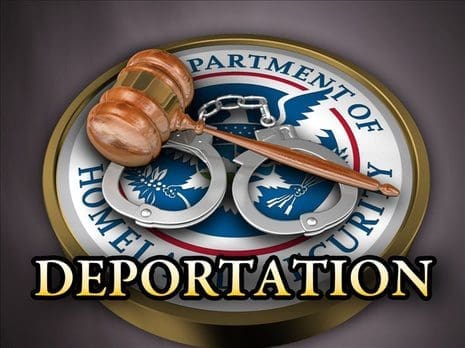Constitutional questions surround Ghana’s reported agreement to receive non-Ghanaian deportees from the United States, with legal activist Oliver Barker-Vormawor citing precedent requiring parliamentary approval for such arrangements.
The lawyer and political activist raised concerns Thursday about constitutional compliance regarding the alleged deportation deal, referencing a Supreme Court ruling from former President John Mahama’s previous term that limited executive authority over similar agreements.
Barker-Vormawor highlighted the 2016 Guantanamo Bay detainee case, where Ghana’s Supreme Court ruled the executive branch lacked power to accept foreign nationals without parliamentary oversight. The court decision established constitutional requirements for legislative approval of such arrangements.
“The Supreme Court held that the Executive did not have the power to make such deals without Parliamentary oversight and approval,” Barker-Vormawor stated in social media comments addressing the current situation.
The activist questioned whether proper constitutional procedures were followed for the reported US deportee arrangement. Ghana’s Parliament currently maintains a governing party majority that could facilitate approval if the agreement were submitted for legislative review.
Details of the arrangement have now been confirmed by President Mahama, who justified the agreement under ECOWAS free movement protocols. The president stated Ghana accepted West African deportees because regional nationals can enter Ghana without visas under existing treaties.
Barker-Vormawor emphasized constitutional compliance over policy disagreement in his immediate response. The activist indicated he would address substantive concerns about the arrangement’s implications separately from procedural questions.
Ghana’s experience with the Guantanamo detainee arrangement provides legal precedent for current constitutional challenges. Two former detainees were relocated to Ghana in 2016 following agreements between the Mahama administration and US officials.
The Supreme Court’s previous ruling established clear boundaries for executive authority in international agreements involving foreign nationals. Legal experts suggest similar constitutional requirements would apply to any new deportation arrangements.
Parliamentary involvement in such agreements ensures democratic oversight and public debate over policies affecting national sovereignty and immigration. The legislature’s role includes evaluating financial implications and security considerations.
Immigration policy coordination between Ghana and the United States has historically involved formal diplomatic channels and treaty arrangements. Bilateral agreements typically require legislative ratification under Ghana’s constitutional framework.
Opposition political parties have not yet responded publicly to reports of the deportee arrangement. Parliamentary debate would likely examine both constitutional procedural requirements and policy implications of accepting non-Ghanaian deportees.
The constitutional questions reflect broader concerns about executive authority limits and democratic governance standards. Ghana’s Supreme Court precedent demonstrates judicial willingness to enforce constitutional boundaries on presidential powers.
Legal challenges to international agreements have become increasingly common across African nations as courts assert constitutional oversight over executive actions. Ghana’s judicial system has established strong precedent for reviewing such arrangements.
The outcome of any constitutional challenge could influence future Ghana-US cooperation on immigration matters. Clear procedural requirements help ensure democratic legitimacy for international agreements affecting national policy.
Source: newsghana.com.gh











